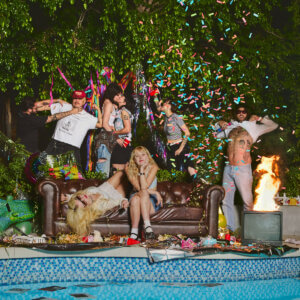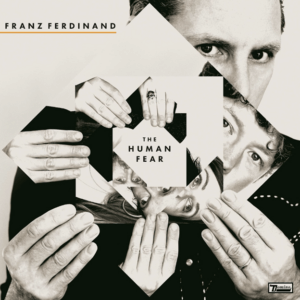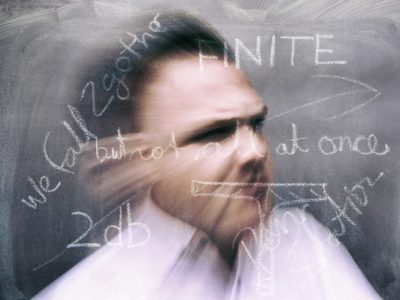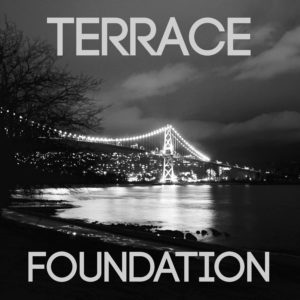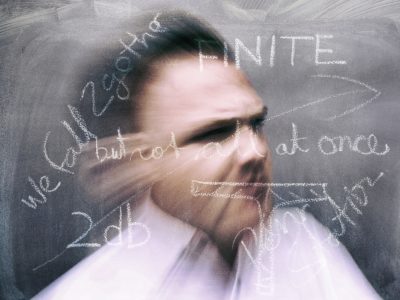Our interview with Simon Lock from Terrace
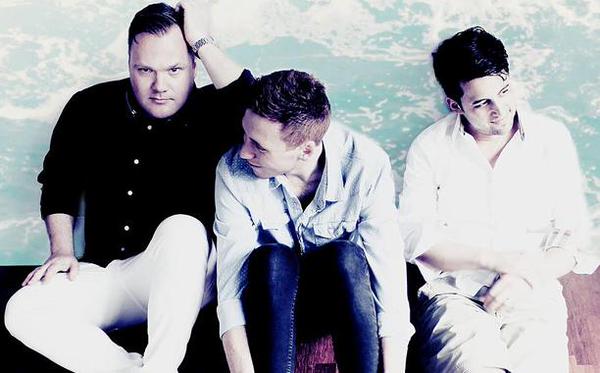
Simon Lock, Kalani Polson and Alex Cooper make up the band Terrace. Their latest release, We Fall Together, is a breezy and beautiful summertime mash up of dance, trance, electronica, and ambient, with a dash of classic pop. It’s the sort of music that you put on, pour yourself a glass of something cold, and while listening, you start wondering where your bathing suit is, and could you possibly quit your job for the summer, or forever. Entertainment Weekly called their music “dreamy and danceable…with a quality of timelessness.” Although the band is based in Vancouver, their sound owes more to a worldly, European feel. Simon Lock is also an airline pilot, so it looks like landing in all the best places is an idea he’s been able to translate to music. Northern Transmissions had a chance to check in. Alice Severin spoke to Simon Lock about the vision, the band, and the image.
Northern Transmissions: Hello! How are you and where are you?
SL: Good, thanks. I’m just in my front yard area right now, in the heart of Vancouver. It’s summery – 30 degrees Celsius. It’s awesome. It’s the winters here that get a little diff, rainy and dark, and that kind of stuff. Summers here are really hot, really dry.
NT: You’ve got an interesting job – when you’re not making music, you’re an airline pilot. Do you fly everywhere?
SL: I’m international. Mostly the South Pacific, and New York, down to the Caribbean. My main route is usually Los Angeles.
NT: How long have you been flying?
SL: About 21 years now. I started when I was 18. I was a house DJ for years and years, and going to school. And I just carried that through, and I’ve been flying ever since.
NT: And the new album, We Fall Together, came out on June 8. That’s a big deal, congratulations.
SL: Yes, thank you! The album is out now on all the platforms. It explains my hangover right now.
NT: Hair of the dog?
SL: I don’t know. I’ve got simulator training for two days starting tomorrow. So more water, and some vitamins maybe.
NT: So how did you all meet and decide to work together?
SL: Well, I quit DJing in 2003. Working for an airline, the lifestyles weren’t exactly mixing well. But when I left, I still wanted to do something in music. So I went to a friend’s studio and tried writing house, and it was just the worst thing you’d ever heard. (laughs) So I abandoned any idea of making a go of it because it just sounded dreadful. You couldn’t even play it back, it was horrible. And in 2009-2010, there were so many great albums that came out, like Mike Snow, Friendly Fires, all that genre. It was really really exciting. And I thought, well this is stuff I’ve always wanted to do. So I just kind of went and got some stuff, you know? (laughs) And I’ve had eight different people in Terrace. It’s been me since the beginning, my idea, my vision. But the guys I have now are permanent, and contributors, and all that stuff. So it’s really like been up until now, me, with a rotating cast of people.
NT: What about this new combination of people has made you feel like this is it, that this is the right one?
SL: I think the brutal honesty. (laughs) That’s the main foundation of it. I’ve worked with a lot of people who in close quarters had frustrations and didn’t air them out or put forth their best suggestions, you know? But these guys really, they get stuck in, and we’ve got this relationship where if it’s not working and we don’t like it, we automatically know right away and we work around it.
NT: It’s got to be pretty raw and emotional when you’re writing songs with other people, you’re really exposed. And when you’re playing together, you’ve got to have that level of respect.
SL: Yeah, you really do. It’s gets to a point sometimes, anyone in a band will tell you that, there’s groups formed amongst a band. There’s two guys that don’t like this sound, there’s one guy who doesn’t like what they’re doing, you know, and a lot of times it just gets hidden, stuffed under the rug, and that’s a really bad way to do it. If it’s out in the open, then everyone knows, it’s awkward for a little bit, whatever, you get glances or stares, eventually the problem solves itself. The other thing too is that the three of us have different musical stylings. Kalani is a jazz drummer who trained under Elvin Jones in New York, John Coltrane’s drummer, when he was a young young boy. And he’s a jazz guy. And Alex is a heavy metal head. He comes from the United Kingdom. But he likes a wide variety of music. And I’m heavily rooted in house music, so it’s kind of a mixture of all of these together to get what we do.
NT: There’s a bit of a 80s influence, like the saxophone sound on “Special Place.” But there’s also elements of house and ambient, the album has a certain dance club vibe to it.
SL: That’s kind of what we are aiming for. We don’t want our music to sound like anything in particular. You know, like that sounds like 1982, or that sounds like 1990. I’ve always wanted to set it up so you can hear the ambient in the song, you can hear the house music in the song, you can hear the rock influence, but you can’t really pinpoint it. I think that’s really important. Otherwise, it just sounds like, oh they’re an 80s band. You know, no one wants that.
NT: Some of the most interesting bands always give that feeling when you listen that it reminds you of something, but you’re not sure what, it’s a whole mix of things.
SL: Yeah, and that’s what makes some bands great. Like Foals, for instance. They’re incredible that way because you feel like you’ve heard it before, but you haven’t heard it before, all at the same time, you know?
NT: Doing something creative, the best part is when it feels like it’s always been there – but it hasn’t.
SL: Yeah, exactly. That’s really the goal, because the music industry has changed so much. You’re not really doing it for the money anymore, because there really isn’t any. Unless you’re a huge name band. So you’ve got to do it for the love of doing it, and make something that hopefully people will get into. That’s the funny part too. I can’t imagine what it would be like trying to support a family or live any kind of a really interesting life being in a band on our scale these days. It’d be really really hard.
NT: How is Vancouver as a place to work and record?
SL: I don’t know. (laughs) It changes with the seasons. Vancouver is a really tough city to be a band in. A lot of bands sound the same. They either have a straight 80s vibe, or acoustic guitar and vocals vibe, or some really quirky thing, quirky music, quirky lyrics, that kind of stuff. To do what we do here is tough. But it’s a tradeoff for the atmosphere and surroundings. The world’s only tied together by one flight. You can be anywhere you want, if you need to go and do something. But for creative reasons, it’s really cool to write here. But playing here…
NT: That’s interesting, the idea that you’re only one flight away from anywhere else. Especially doing what you do, that must feel especially true.
SL: It does. When you see so many different countries and cities on almost a daily basis, you really realize that. And after you’re thinking that way, the world doesn’t seem so big anymore.
NT: Every time I get in a plane, I feel like I remember that – look, it really doesn’t take that long to get somewhere that seemed a million miles away.
SL: Your whole perspective can change that way. I’ve been using that aspect while I was writing this album. Using that aspect to travel, and then escapism played a huge part in the whole feel of the thing. I came up with the concept, and stuck with it. How the album should sound and feel, how I want everything to sound. Like it was the soundtrack on a yacht in the south of France. (laughs) I wanted everything to feel like white linen pants, and big sun hats. And it was the result of travelling that put that idea in my head.
NT: You say on your Facebook page, “If you want to travel without moving, you’ll like us.”
SL: Yeah. (laughs) And it’s kind of a little tip of the hat to Jamiroquai as well, his CD with that title. And some of the best travelling I’ve ever done has been without moving, you know? It’s one of those things. I’ve been as excited listening to a new record as I’ve been getting on a plane and going somewhere. To me, it’s kind of on the same level – it’s almost the same act. More or less. It’s taking you places. Best hour of your life – if the album’s really good. It’s the same as doing anything like travelling or life, visceral experience. Music still has the power to do that, which is one of the reasons I keep writing records.
NT: “Cote D’Azur” is a great track, with that jazzy pop keyboard sound. How did that song come about? And of course it was your first video as well. Entertainment Weekly gave it a rave review. It’s got that summery, vacation at the beach feel. At the end, when the music fades out and you can hear the waves hitting the shore – it just takes you away.
SL: That’s the genius of Marc Alcover of Spain. All the videos were shot in Mallorca, but made to look as though it was the south of France. “Cote D’Azur” is funny. That song started about two years ago. I had heard a new Cut Copy song, and I said oh shit, they’ve just done exactly what I wanted to do. And I was frustrated but I had this idea for a song, and I sent it to Chris, who used to be in the band, and he said, that’s easy, we can do that in five seconds, and he sent me back in ten minutes, what became the chorus loop of “Cote D’Azur”. So it had guitar, and keyboards, and drum loop. And that’s all it was, like eight seconds long. And he said, see how easy that was? And I thought, yeah, I really like that. And then I took the parts, wrote the verse, tweaked a few things, made it sound nice. And the Rhodes piano he used in that, the keyboard, had a really rough sound originally. So just tweaking the settings of the instrument itself, made that really nice smooth, soft 80s sound. And then from there, we put in the chimes and the steel drum, which is really quiet, and all that stuff. The song sounded really good, and we were really happy with it. Then lyrics – lyrics always come last, you know. And that song was the first one that was really completed and the first one that I was really head over heels about, Chris and I co-wrote it together. And always, from the beginning, it was going to be the lead single, because it just had that feel that I wanted, that sun-drenched, heat feeling, you know? When we talked to Marc about the video, we said, it’s supposed to be the south of France. And he said, no problem, I can make Mallorca look like the south of France. (laughs) And he did.
NT: It does give you that relaxed, wonderful beach holiday feeling. It makes you want to go there right away. Drop everything, and take off.
SL: Yeah. We didn’t want it too exciting. We wanted the person to think you’re on a day date with the girl, like this is somewhere you’d want to be right now. If you’re a guy, you want to be there with her, if you’re a girl, you want to be her. People going to work and getting that, life doing its thing, feeling – we wanted to make a video that kind of looks like a tourism video – hey, look, you could be doing this right now.
NT: That’s it – that feeling of, what am I doing here? Let’s go. All the songs on the album have that very relaxed, drift away kind of feeling.
SL: Well, thank you. I like hearing that, because sometimes people don’t understand what I’m trying to do. People will say, yeah it’s really like disco, and then I think, shit. Ok. So to say – your album sounds like summer – I think that’s the best compliment I could ever get.
NT: I don’t think it sounds like disco at all. When you said you had been a house DJ, it made sense.
SL: Yeah. And being a house DJ, Acid House, the rave scene back in the early 1990s. There are so many good sounds from there that no one is ever going to hear. So I felt like I wanted to get some of those sounds into our songs. And people go, yeah, that sounds crazy! But if you think that sounds good, listen to the original, listen to where the inspiration came from.
NT: That kind of bittersweet happy feeling some of those tracks had.
SL: Yeah. That’s a really good way to describe it actually. That bittersweet, broody but happy. There’s something serious going on here, but I still feel good.
NT: “Exit Stars” was the second single release, and apparently it’s going to be a trilogy, and each of the three songs will have a video?
SL: We just finished, well Marc just finished production on the next single, which is “Special Place”. It’s really interesting, because we film our parts in Vancouver, and we send them to him in Sweden, he’s there now. And then he usually says, well, it’ll be a while – I’m really busy, and the next day it’s in your mailbox. Boom. (laughing) So the video came through and he just knows exactly what we want, all the time. And it kind of wraps up the love affair that the camera has with Paula throughout all three videos. In the first one, it’s very vacation-y, very beach-y, and in the second one, she’s being pursued, almost taunted by the ocean, stuff like that. This one, it’s a happy song. So many people I’ve seen videos for, and they look so sullen and serious. You know? You think, they all look so pissed off. So we actually just kind of goofed around for our scenes in this video. And first time I’ve ever been in a video, it felt like hey, this is kind of funny. We made it very light. It’s not the big traumatic wrap up to a trilogy that someone would expect.
NT: That’s a nice change.
SL: Yeah. At our level, starting out and stuff, of course you want to be taken seriously, but you don’t have to be serious all the time. That’s when it becomes like a job. You don’t know what tortures I went through to get my heart out. Like, oh, come on. You can smile once in a while. It’s all right.
NT: Some of the most memorable music videos since they began have been light, even a little silly at times. Or there’s the image of people marching down the street…
SL: Yeah. Richard Ashcroft nailed that video. Fantastic, walked down the street, smacked into people. He got the sullen, angry artist down pat.
NT: That’s so funny you said that, because I was just thinking of that exact video, Bitter Sweet Symphony. That’s one that works so well.
SL: People like videos that tell stories. I don’t. I like videos that just simply look good. You know? It doesn’t have to have some kind of ironic story, it’s not Game of Thrones. You don’t have to have a 700 page script treatment for it. Just make it. We wanted to fly to Spain and be part of it, but I don’t think any of us are the biggest fan of videos or photo shoots. We’re not much to look at. We look like rejects from the Pretty in Pink extras trailer.
NT: The whole image thing has got to be tricky – and obviously so separate from the actual music. Creating the brand.
SL: Image is the hardest thing about this whole thing. People love comparing your music, comparing your style. People need comparisons to decide if they like it or not. “Oh that’s great, it sounds like so and so” or “They look like so and so.” You know? You constantly get that. A few years ago, when it was starting to take shape, we wondered what we were going to look like and then decided, screw it. Whatever you want.
NT: People react to people having fun. Everything has become so image driven, to the detriment of the music, definitely.
SL: Yeah, you make a point there, because some people have an excellent social media game. They take good photos. Then you put the album on, and you think, you should have worked harder on the album, instead of taking selfies.
NT: Sometimes it seems like the image part came first.
SL: I wanted to remain anonymous on this project, all the way through. So we took all these photographs, lighting behind us, and all that kind of stuff, and I realized that in itself was being just as moody or cynical as the sullen band shots. So I thought, ok, they can see us, we’re not much to look at, but we don’t have to put on an act either. We just are who we are. You go and see bands like Friendly Fires, for instance. They are incredible live. Not much to look at, but they just kick off, and it’s so much fun. And as a result, everyone else is having fun. And it’s one of the only bands I’ve ever seen that plays Vancouver and gets everyone dancing, because Vancouver is a very very tough audience. Here, everyone’s a bit apathetic. The song will end, and there’ll be people clapping their hands, and are you having a good time? Yeah, this is fucking great. But you’re just sitting there. I once saw Interpol play here and thought they weren’t going to come back for their encore, because no one seemed to really care. They were caring, it’s just the Vancouver audience.
NT: And bands feed off the energy from the audience. You read about bands that have a worldwide following, and they get to places that are tough, and they say it’s a whole different thing.
SL: It’s part of the whole thing with live music. It takes you places just like travelling takes you places. Listening to an album, or having a really good meal takes you places. It’s the same concept, coming back to the idea of travelling without moving. It’s hard to get into that if you’re not really participating, just observing.
NT: Are you planning to tour to support the album?
SL: Yeah. Every time we start talking about this, we tend to jinx the whole plan. We keep having a few hiccups when it comes to this. But we do have plans to tour in the States in the very near future, the West Coast. We’re not doing a lot of the States. But we will be doing the West Coast, and I hope New York, and Miami. And then our manager has plans for us to go to Europe in the fall, because our biggest market is in Europe, so. All the campaign is focused at the moment on either LA, New York, or Italy, France, Germany.
NT: That makes a lot of sense.
SL: They’re very open minded there. We’re very focused on the latest trends here. I mean, I’m sure every city has got their sound and their scene kind of thing. But in Europe they’ll have whatever’s good. They’ll listen to the best heavy metal, psychedelic, the best house music, the best dance music. They’re just like, it’s either good or bad. Here it’s so segregated; there are so many different genres. That stuff always has driven me crazy too.
NT: It’s like mainstream radio here is so different from what it is in the UK, like XFM. It’s a wider range there.
SL: I think the best thing that happened to radio was Zane Lowe. Even though his show got a little crazy at times, he played two hours of the best music of all genres. There was no bias. I’m playing two hours of the hottest music, or what I think it is. I like that, and I wish there were more outlets like that in North America. You get stuck into this idea of “what you should like” and that part sucks. I think that’s what makes it harder for a band like us to make a bigger impact.
NT: Europe will be a great jumping off place to tour.
SL: Fingers crossed, luck and a good wind, we’ll be packing our bags soon.
NT: You’re inspired by travel. Anything else?
SL: I take inspiration from chefs as well. My mum is a chef, my brother is a chef, and I’ve been around the culinary family for ages. I take a lot of inspiration from watching great cooks. They treat cooking like art as well. I think the way they prepare food is the same way – I like to think of it the same way I make a song. You start off with a flavor base, and then you work up into a stock. And then you get yourself something more rich, more texture. Then you add more layers to it. And then add something fresh. Then when you serve it, you add garnish, sprinkles on the top, and you fire it up. I see it a lot like that.
NT: The quality of the ingredients that you put in. That love and care that raises something that could be everyday to another level.
SL: And the way you treat it. I’ve been in restaurants before where they bring you a bowl of raw vegetables from the farm. And you get a couple of things on there, a dip, and the best things are simple. Music can be like that too, you can make a very simple song and it can be awesome because you treated it properly.
NT: And five albums that you return to, that inspire you.
SL: Pick five albums that changed your life. Go! Ok.
Aphex Twin – Selected Ambient Works 85-92 – that’s something I can always go back to.
The Verve – Urban Hymns
Interpol – Antics – that was a game changer.
Stone Roses – Stone Roses
The Smiths – Louder Than Bombs – a greatest hits thing they put out.
Alice Severin
Latest Reviews
Tracks
Advertisement
Looking for something new to listen to?
Sign up to our all-new newsletter for top-notch reviews, news, videos and playlists.
